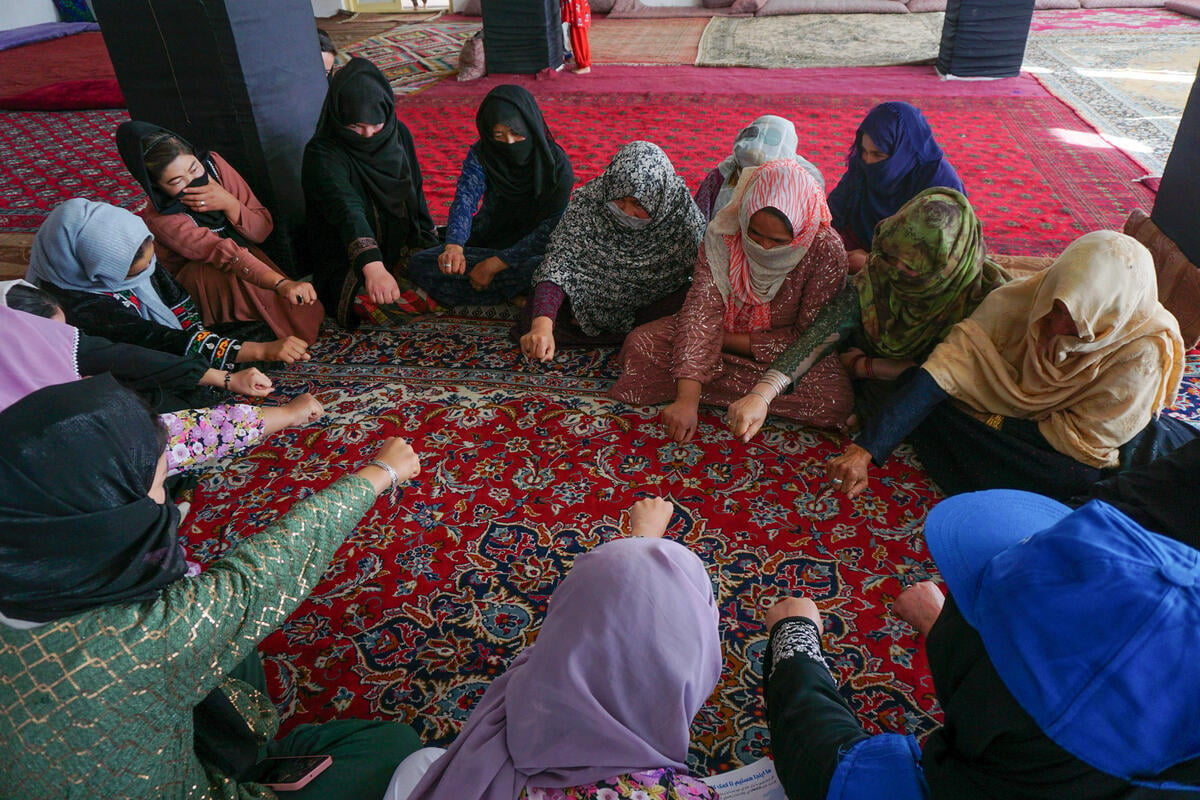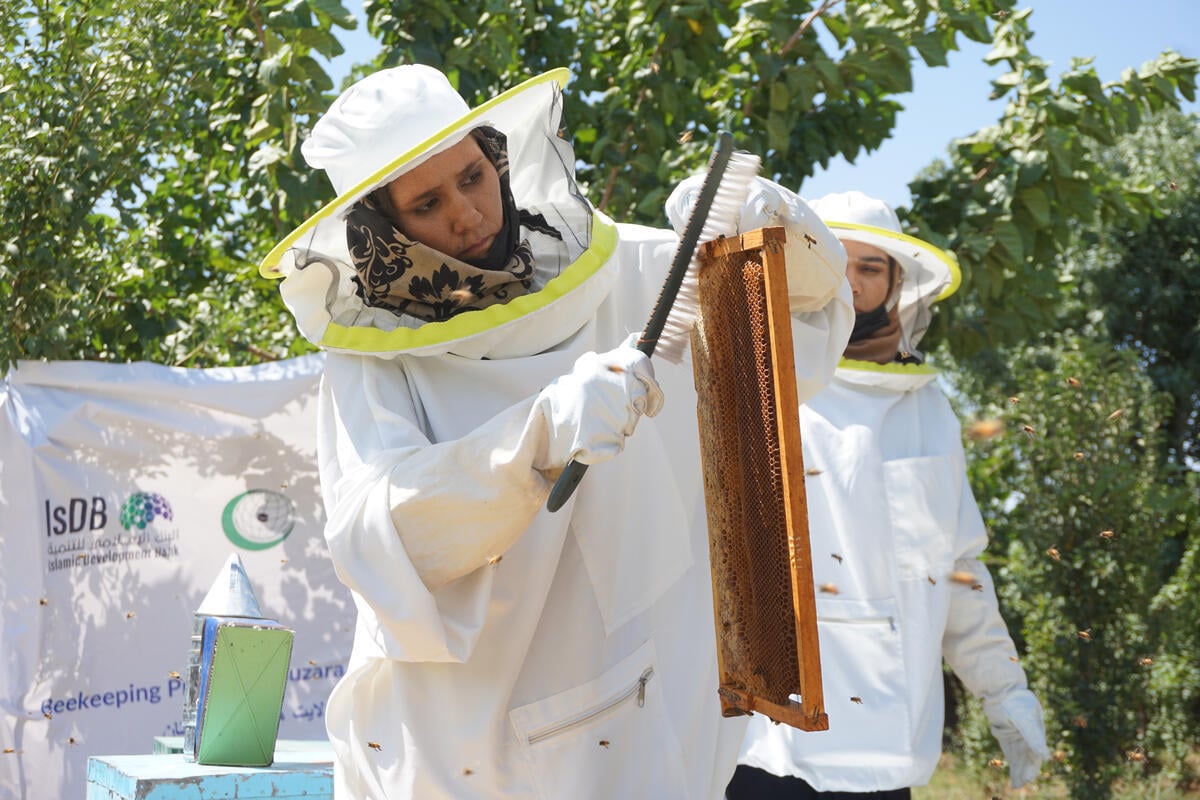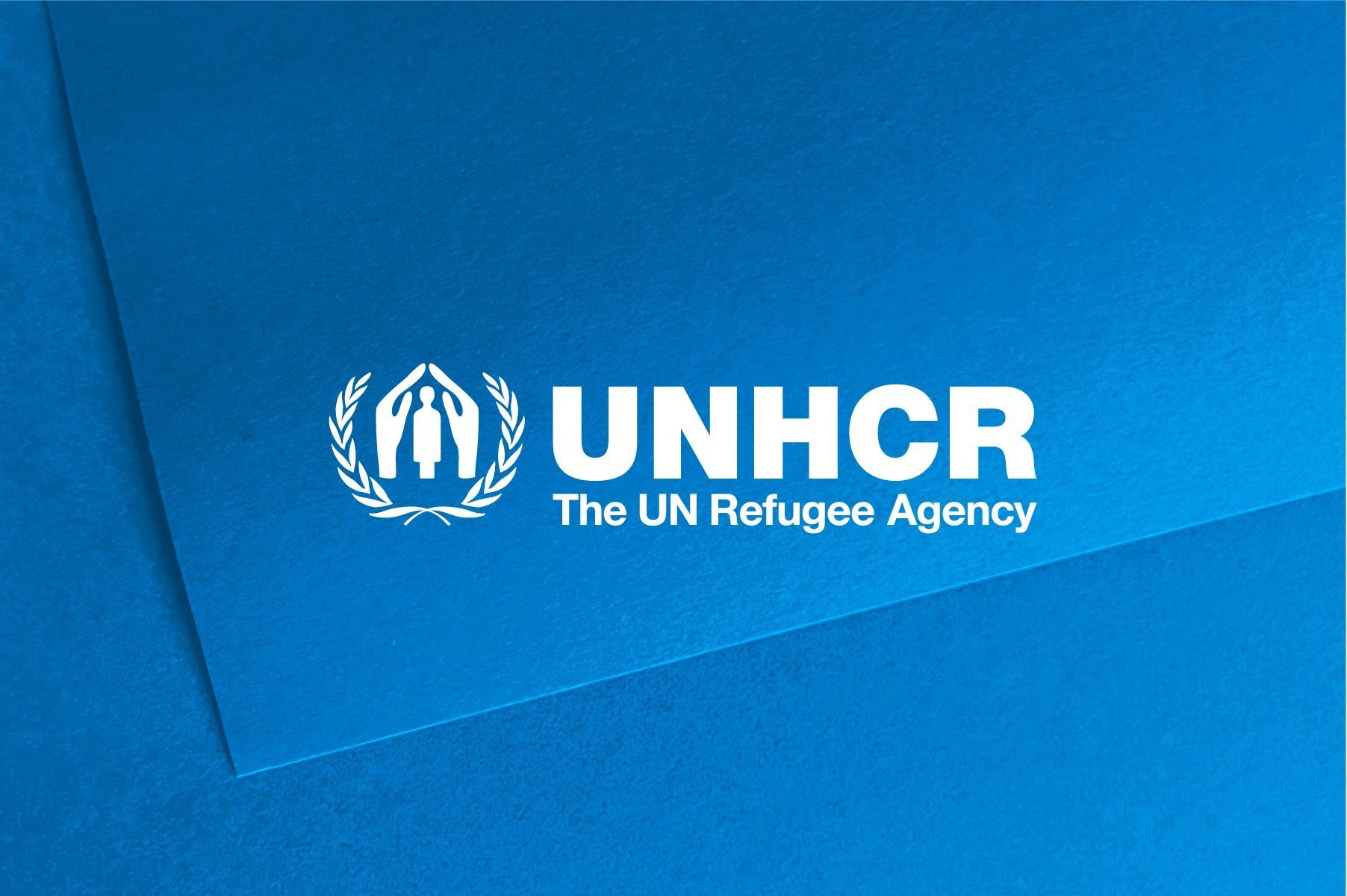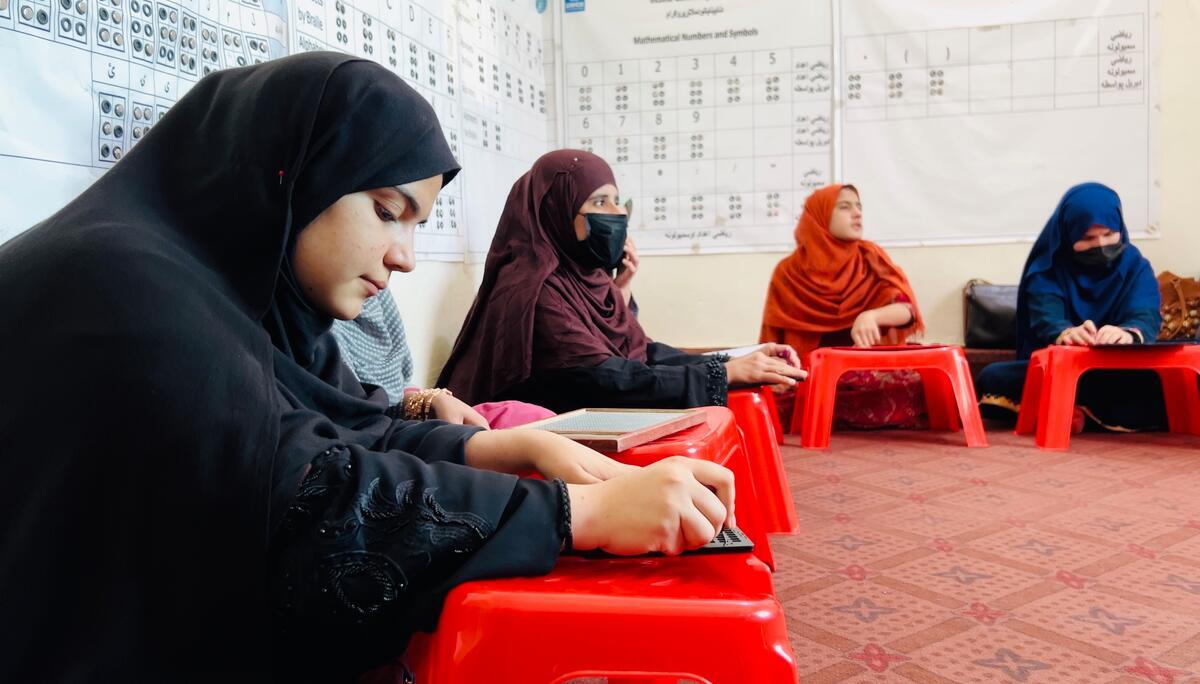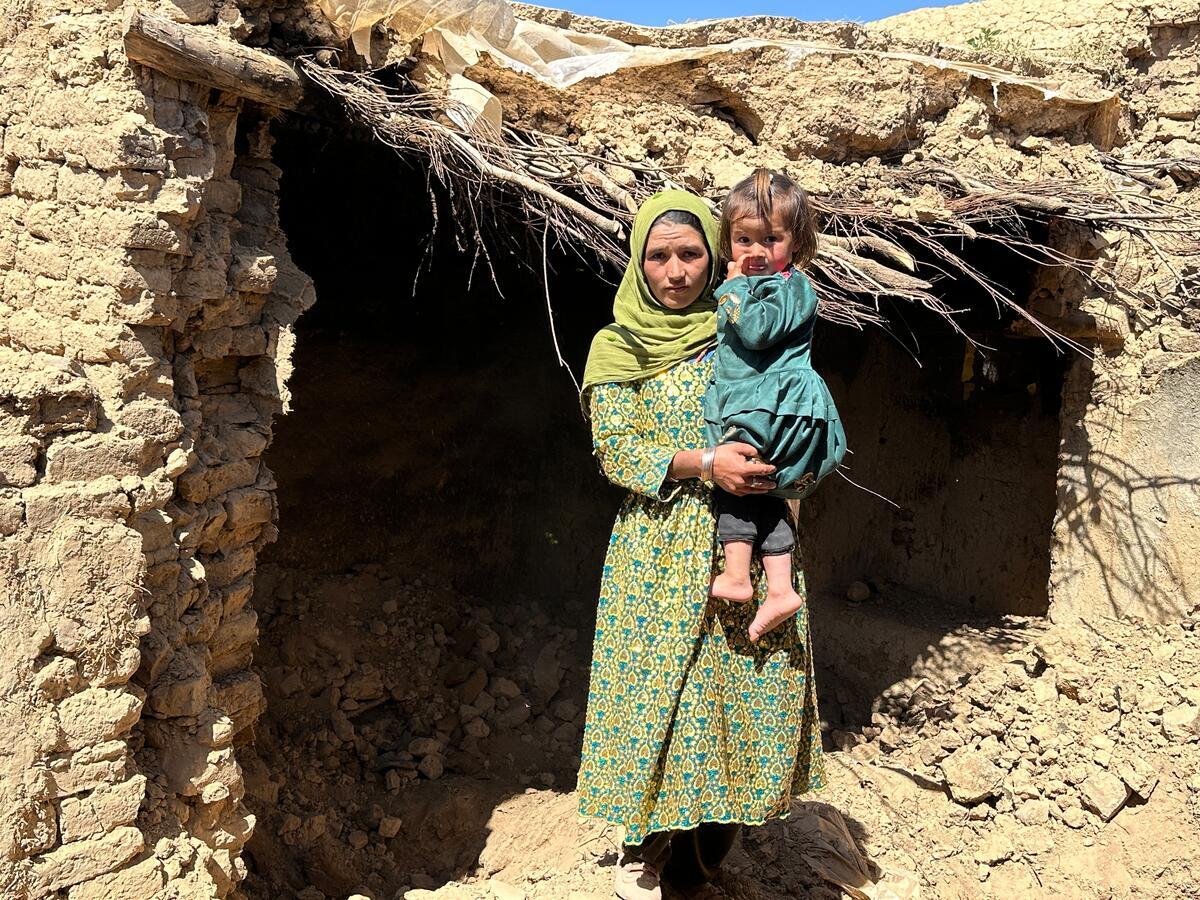Afghan returnees rebuild lives with bricks and pride
Afghan returnees rebuild lives with bricks and pride

KUNDUZ, Afghanistan, September 24 (UNHCR) - The frame of the photograph may be dusty and old, but the picture is Shamila's most cherished possession. "When we fled, we had nothing. No clothes or belongings. But he protected us, watched over us." The piercing eyes of her bearded husband stared back as she kissed the glass and replaced the photograph on two rusty nails.
Six years ago, her husband was killed in a rocket attack on their village in northern Afghanistan's Kunduz province. It wasn't the first time the area had been attacked and by then Shamila was well used to the running battles. But now she realized that they had to leave. She took her six children and fled with relatives and other villagers to Pakistan.
Two years ago, she returned with other families who had also settled in Jalozai camp, located in Pakistan's North-West Frontier Province. Many of them had been living in Pakistan for more than 20 years. The returnees were cutting ties with a country that had become their adoptive home - and birthplace of many of their children - to return to a village and country in ruins.
"Shamila's situation is reflective of what many returnees go through. They have many needs, and rebuilding their homes is one of the priorities," said Alex Mundt, head of the UNHCR field office in Kunduz. The refugee agency is helping people like Shamila restart their lives under a special shelter programme.
"Many people have returned to find their villages totally destroyed. They arrive home and there is literally nothing left - drinking water is sometimes an hour's walk away and it will be years before most of the children have a chance to go to school. But they have shown extraordinary resilience and courage," he added.
Mundt points to houses made of mud bricks, half built, where women wearing colourful head scarves shelter in the shade. "UNHCR has helped returnees rebuild their homes. But they still need our help to recreate lost livelihoods, get access to services, excavate water points and re-establish communities so that they can provide for their families and give their children a better life."
Although there is no accurate figure on the number of houses and buildings destroyed more than two decades of war, it's estimated that more than 500,000 homes were ruined.
As they return to their homeland, many returnees have no choice but to live with their relatives or friends, often in overcrowded conditions. Others must live under tents or stay in dilapidated public buildings which lack utilities.
Rahmat Gul, a 38-year-old father of two, is among those who have benefited from UNHCR's shelter programme. He was given essential construction materials such as tools, roofing beams, doors, windows and a latrine.
Gul, and other men in the community, clearly took pride in rebuilding their lives and their village, but they also pointed out the many difficulties. "This is our country, our land, our village. I grew up hearing the stories my father would tell us about what our land looked like. This is where we belong. But it's hard to survive. We need water, jobs and somewhere our children can get educated," he said.
"These hands want to work," he added, holding out his palms. "In Pakistan, we could earn a living as labourers. But there is no work over here. Like every man in this village, I want to be able to support my family and give them a good life."
Access to jobs is one of the main priorities in this region. Villagers point out that some families have already sent some of their older sons to Pakistan to earn and remit money.
Considering past repatriation trends and indications in Afghanistan's political stabilization and economic reconstruction, UNHCR anticipates more returns from Iran and Pakistan this year. A vast majority of them will need shelter as a matter of priority before the winter.
"The era of mass returns of refugees is clearly winding down, but we still have a huge role to play in Afghanistan", said Salvatore Lombardo, UNHCR representative in Afghanistan. "Returnees have enormous faith in UNHCR. They know that rebuilding their communities will take time, maybe a generation, but they are counting on us to help them."
For Shamila and others in the settlement, the long road home from Pakistan is over. But in many ways, a new journey is starting. Building a home was the start of it; now they must start rebuilding their lives.
By Maryann Maguire in Kunduz, Afghanistan




